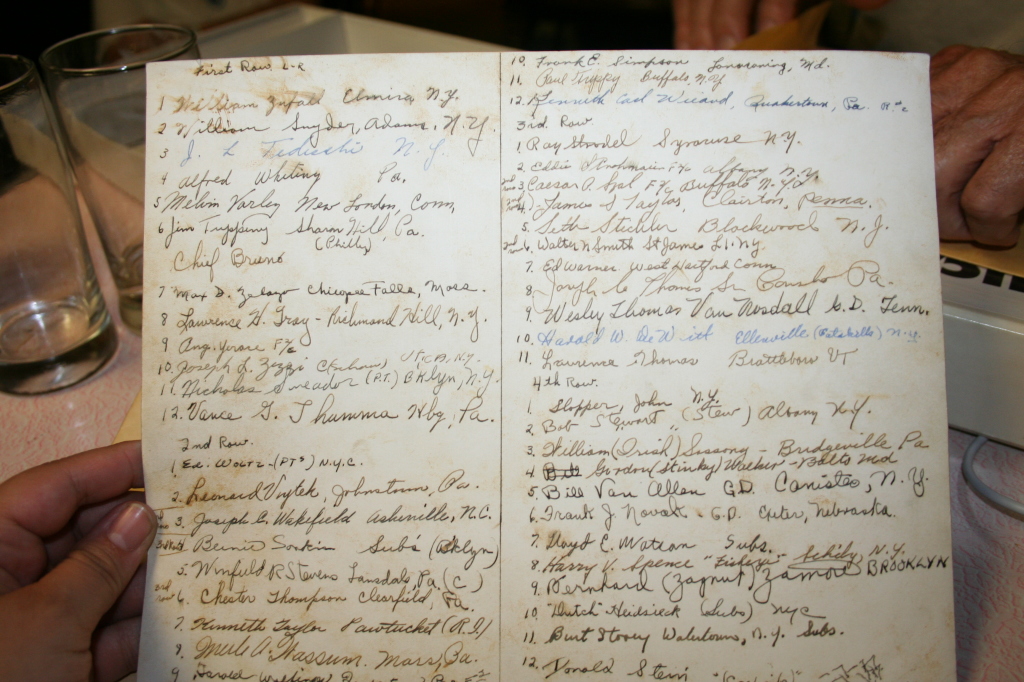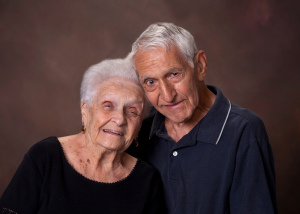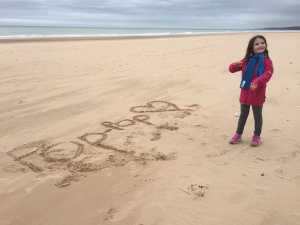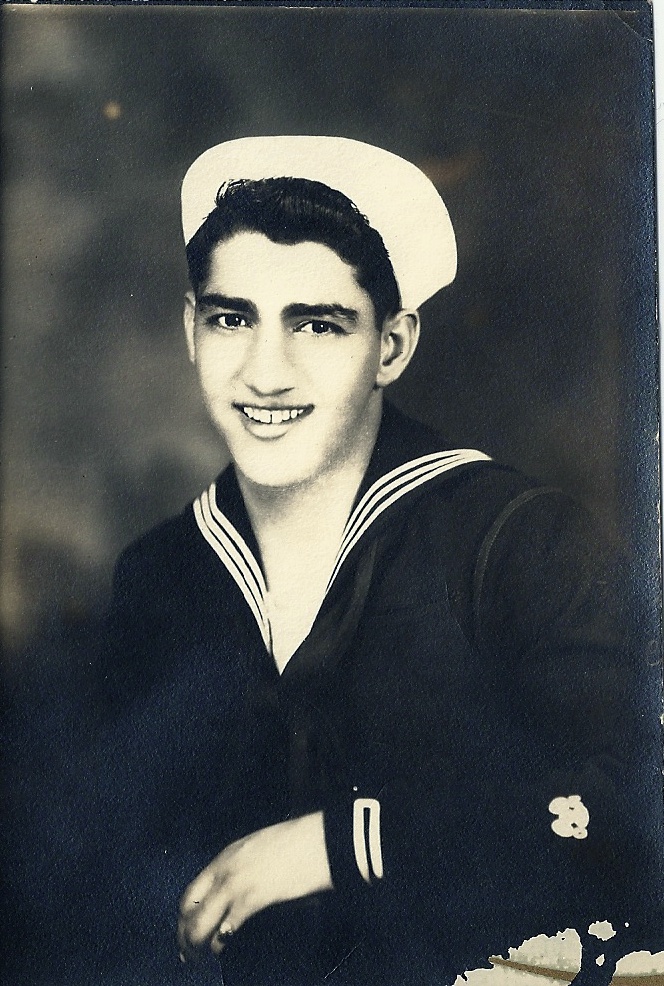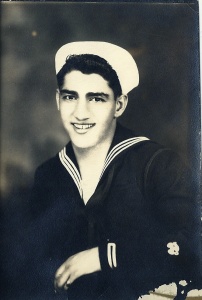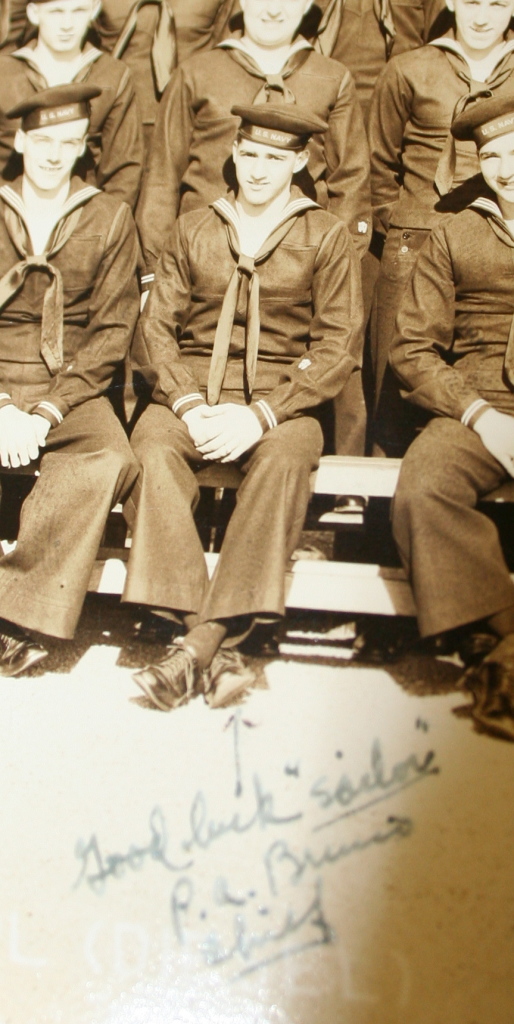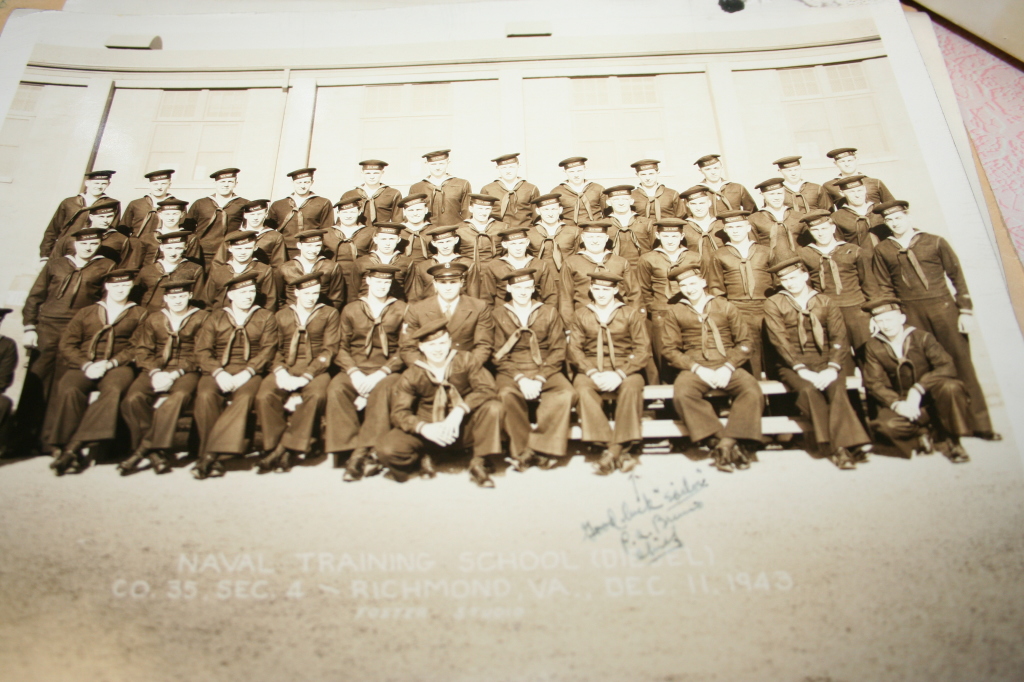Today, 08 May, is V-E Day, or Victory in Europe Day. This year marks the 70th anniversary of the day Allied forces accepted Nazi Germany’s surrender. Just last week, I was in Florida for the 90th birthday of my grandfather, Angelo Yerace (known to me as Poppop), who took part in the Invasion of Normandy almost 71 years ago. While I was visiting, we had a conversation about D-Day, and WWII in general. The conversation, one of less than a handful of times he has talked about the war, was not long, but it was candid; fortunately, I was able to capture most of it on video.

This conversation began when I was showing him pictures from our recent trip to Normandy. I asked where he went for training. He mentioned Bainbridge, MD, and Great Lakes, then went on to say:
“And they gave me [an] aptitude test. And they says, well, I’d make a mechanic…so I went to mechanic school[,] somewhere up in Rhode Island. Then I went to the school down in Great Lakes, and went down to Virginia.
And then they gave me a choice, of whether I wanted to go on submarine duty or something. I said no, [so] they said, well, we’ll put you on the amphibious force. Landing crafts.
So they put me on a small landing craft, but the landing craft that I was on, it wasn’t ocean-going. It was just real small, it was like a pontoon boat. So they put it on top of an LST, which is a big, big carrier, and we were supposed to land and go to London. But when we got half ways across the ocean, the Germans were bombing the heck out of London.
And so we thought, well, we can’t go to London, so we went up to Scotland! We landed at Scotland and stayed there for a day or two, then we had to take a train down to London, and spent some time in London, until it’s time to make the invasion.
And when Eisenhower planned the invasion [for] a certain day, the weatherman said no, that’s not going to be good that day. So they said, well, we’ll change to June the 6th.
And so June the 6th, they put us all on our little landing crafts. And the one I was on was an LCT, called Landing Craft Tank. It would hold a tank, or it would hold like 45 men, or 36 men. So when come time for D-Day, we started early in the morning from London, and our craft could go across the English Channel. And so our craft, all the Navy personnel, [was] going across the channel.
All the airplanes in flight, you know, cleared the site. And I don’t know what time, I don’t even remember what time we got to Normandy Beaches. They were waiting for high tide, so they could almost go into shore. But we couldn’t quite get into shore with all…((trails off))
So that was the craft, where the ramp on the front end lowered down, and all the soldiers would get off, and go in the beach—jump in the water, go on the beach.”
“Don’t think I wasn’t scared.”
Me: Were there a lot of bombs going off around you the whole time?
“Yeah. Sure. Don’t think I wasn’t scared.
I was back at—we had what we called a flag box. Back in those days, you used flags, semaphore flags. You know, there were no such things [as] cell phones or anything like that. You wanna send messages, you use flags—semaphore flags. And we had a box we kept all the flags in.
I got in shore, all these bombs going off, I went back there were the box was, and I hid back there. I was scared to death.
And then, well, we never made it in the whole way to shore like we’s supposed to. We were like, maybe, I don’t know, a quarter…500 feet or 1000 feet from shore—we hit a mine. And so we got to the beach and we just got off the boat and wandered around the shore for a couple days. [It was] probably about 3 days before they finally rounded up, took another boat back to England, and we got another LCT, back to France.
“Ain’t that something?”
[By] that time, Normandy was pretty well secured, and so we had to go in the upper part, the northern part of France, called Cherbourg, and landed [there]. They had Normandy, [so we went in] the top part of France[.]
And look what the Germans did to us. And then, what did we do? We spent billions and billions and billions, and made Germany beautiful. Ain’t that something?”
Me: You hit a mine? Was the boat blown up, or?
“Real…It’s real lucky, we had a lot of what they called Bailey Bridge equipment, on the boat, that they were gonna, you know, put down on the roads, so the trucks and stuff coming in wouldn’t get stuck on the sand. So it’s just lucky, that THAT took the impact, most of the impact, so we didn’t—the boat didn’t sink.”
Me: Did everybody make it?
“Yeah, we were lucky. We had, I think it was like, there were like twelve—twelve of the crew on the boat. [W]e had a cook, we had a boatswain mate, I was a mechanic, we had an electrician, and we got a couple of the Sea Bee Sailors—deckhands.”
Me: Did everybody make it through the war—your crew? Did they make it all the way through?
“Oh, I don’t know. I don’t know, we got there and just split up into different…[trailed off]”
Me: And then did you go home from there? What did you do?
“No, no, the war was getting—the Germans were getting ready to surrender, and then we went to the South Pacific. So we—I landed in Honolulu! Beautiful place. And the war was just starting to slow down, and we just stayed in Honolulu for a while, and just more or less cleaning up, transporting things back and forth, and getting rid of stuff that wasn’t being used anymore. Took it out in the middle of the ocean and dumped it. And the war was over in ’46, [so] they sent us home.
“And you had to find your way home.”
So we got to San Francisco, and they give us—ah, they gave us like two weeks to report back…we landed [in San Francisco], and they says we have two weeks to report back to Bainbridge, Maryland. So, at that time, how you gonna get from California to Maryland? Well, if you wanna wait two days, line up two days and maybe you can get a plane, or you can get a train…well, I took a bus. They had what you called Trailway buses, [they] trailed from one coast to the other. So I took a bus, and stopped at Reno, and from there we [made stops] until we got back to Maryland. And from there, they give us, I think it was like $300—that was our severance pay: ‘You can go home now,’ and you had to find your way home. [shrugs]…[I got to Pittsburgh] and I don’t know how I got home from there.”
((random)) “Planes galore flying in.”
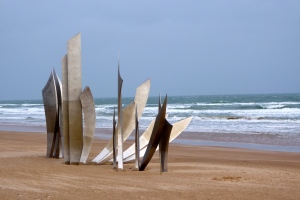
After leaving the room to get ready for bed, he returned:
“You didn’t hear about life on the LCT! And the guys in there, if you had to go to the bathroom, and you went in this one little room, it had two little commodes that you sit on?! And you went! Well, you didn’t have running water, so you went to the pot and then there’s a handle here you ((makes handle swishing sounds)) to flush it…yeah, right in the ocean, who cares? And if you wanted to take a shower, you had like a little wee thing, portable shower, you go in there, no clothes on, you have a handle ((makes handle swishing sounds)) —you got all wet—sea water—[you] wet yourself, put the soap on, soap yourself ((makes handle swishing sounds)), rinse yourself off. Wouldn’t that be nice [smirks], living like that?
Then you had, there were like little bunk beds, but you know, you pulled it down off the wall, and then ((gestures one on top of the other)) one-two-three people…”
And then it was bedtime. He had nothing more to say.
It is worth noting that my grandfather, who had an understandably negative attitude toward Germany for much of his life, was supportive of our move over here. And after almost three years, he is proud as can be.
